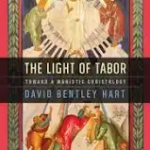Christian Eberhart of Lutheran Theological Seminary gave a presentation on the nature of sacrifice. I’m not a stickler for method, but there were basic methodological problems with Eberhart’s approach. He started from a definition of sacrifice from Wolfhart Stegeman, which laid out four meanings of the word “sacrifice” in modern European languages. (more…) Read more















